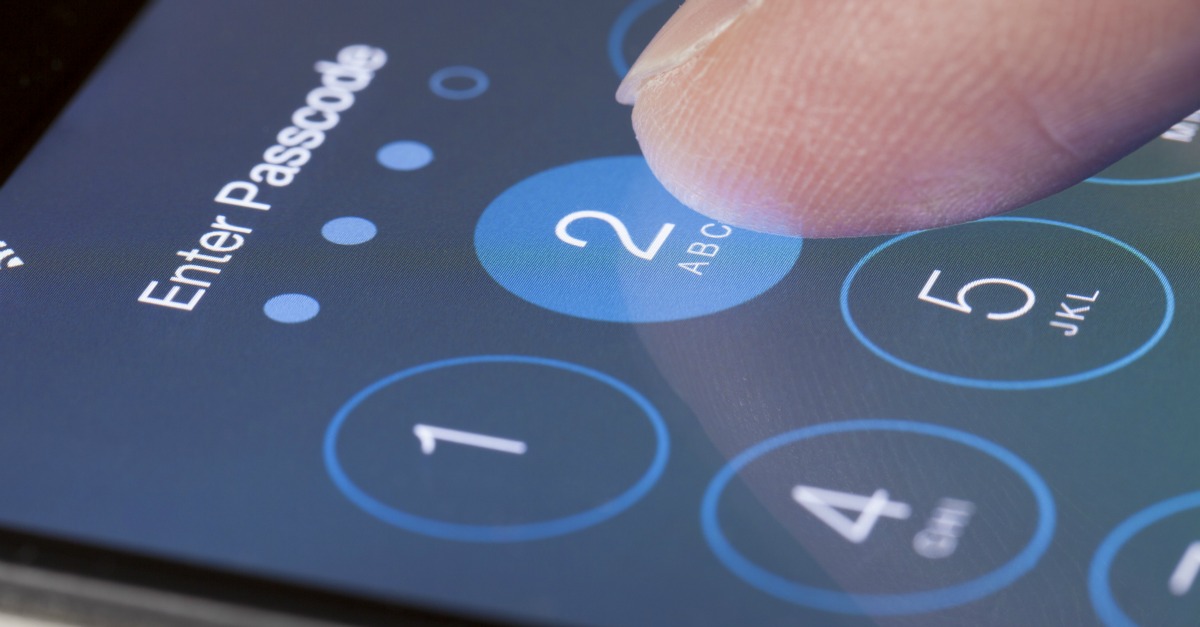It’s one of the decade’s quintessential civil liberties questions: can the government force you to hand over your cellphone’s password? Depending on where you are, the law’s still very much in flux, but one thing seems clear: At the moment, you don’t want to be a defendant in Florida.
We’ll follow the Miami Herald’s description of the latest case. (Uncharitable followers of “Florida Man” lore might be unsurprised to hear that it happened in the Sunshine State.)
A reality TV actress accused in an extortion case involving sex videos must give up her iPhone password to police, a Miami judge ruled on Wednesday. In a case being closely watched in legal and tech circles, Miami-Dade circuit judge Charles Johnson ruled that Hencha Voigt, and a man charged with being her accomplice, must unlock phones police believe were used in a plot to extort a social-media celebrity.
This isn’t a case about whether government can demand to take or search your cellphone. In the US, if law enforcement can “show probable cause that a crime was committed and that items connected to the crime are likely to be found” on your device, they have the legal right to take it and attempt to search it. That’s what happened here.
(Visit Justia for want a bit more plain English detail on the legal requirements for warrants in the US, and visit the Electronic Frontier Foundation for a solid high-level summary of the broader issues involved in search and seizure of electronic devices.)
But what if a device is encrypted, and the police can’t find what they want on a device after they’ve taken it? Can courts require the owner to provide the password? Or does that violate the Fifth Amendment’s rule against requiring defendants to incriminate themselves? Or maybe, as some have argued, a First Amendment right to “not speak”?
To make his decision, Miami-Dade County judge Charles Johnson went looking for precedent – and he found what he needed right in his home state. In another recent Florida case (State v. Stahl), a defendant was charged with taking upskirt cellphone photos, and refused to turn over his password after his cellphone was taken under a duly authorized warrant. A Florida state appeals court ruled he had no choice: he was not being asked to testify against himself, but only to do the equivalent of turning over the key to a strongbox – something a court can indeed demand.
The defendant, Stahl, didn’t appeal this decision to the Florida Supreme Court. So, for the time being, that’s Florida law.
Accordingly, fitness model and Instagram star Hencha Voigt and her boyfriend Wesley Victor were given two weeks to turn over passwords to devices that prosecutors believe contain text messages related to their alleged conspiracy. Victor claims he’s forgotten his Blackberry password, but a few days ago, Voigt provided an iPhone password. According to the Miami Herald, police thereupon brought her iPhone to court, cradled in its Faraday box to protect against someone’s external message to wipe. They entered Voigt’s password – and the iPhone stayed locked.
On May 30, Voigt and Victor have to explain why they can’t provide working passwords – and if they don’t satisfy the judge, they could be imprisoned for contempt of court.
They might be wishing they’d been in Pennsylvania, where courts have so far decided that demanding a cellphone password may violate the constitution’s rules against self-incrimination. Inconsistencies like these often find their way to the US Supreme Court, but that could be years off. (Nobody rushes the US Supreme Court.)
If this isn’t confusing enough, there are important legal distinctions between requiring someone to “use their mind” to tell you their password vs. demanding a fingerprint or voice sample for biometric identification. So far, as we told you back in 2014, American law enforcement is on far firmer ground if it demands something you have, not something you know. And that itself might be good to know.

bob.harry1968@yahoo.com
What is the case in Pennsylvania?
Billy Reuben
How can “I cannot recall” be contempt? Some well-known politicians have used this exact phrase in grand jury testimony without impunity.